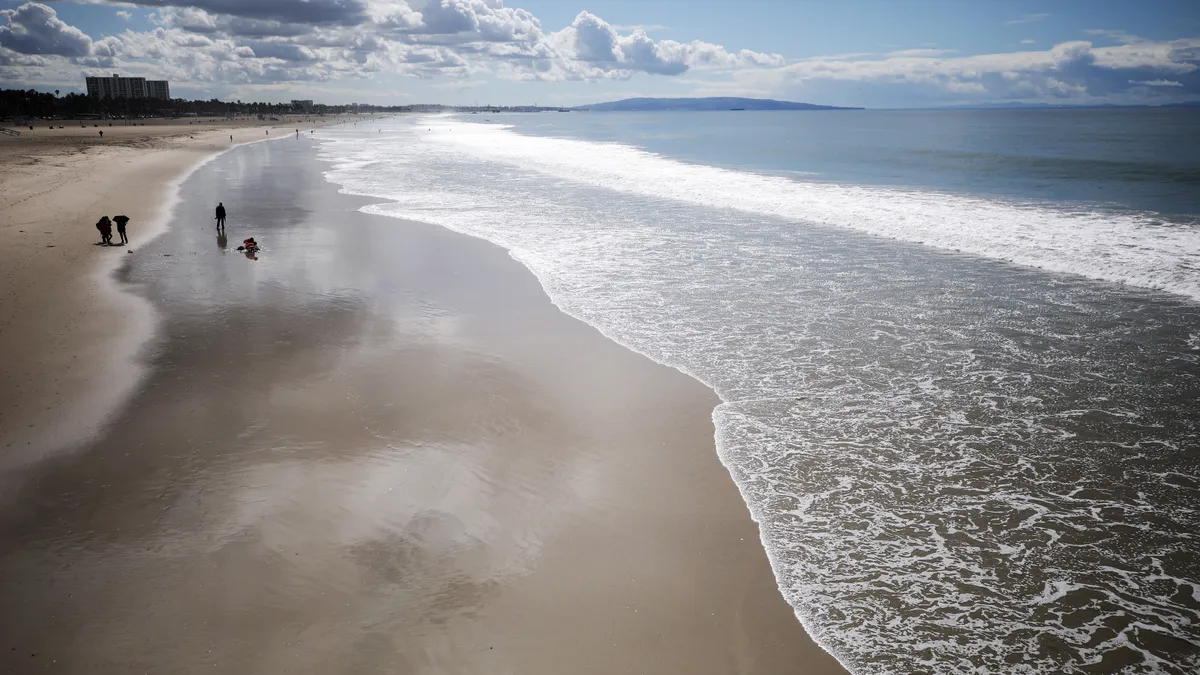Dive Brief:
- Coastal and Great Lakes communities looking to become more climate resilient can apply for a total of $575 million in competitive federal grants through the Climate Resilience Regional Challenge, launched Tuesday by the National Oceanic and Atmospheric Administration.
- Most of the grant money — up to $550 million — will fund implementation of climate adaptation projects. Up to $25 million will be allocated to efforts to strengthen regional planning and collaboration.
- The program is an “unprecedented opportunity to make our coasts more resilient,” said Jeff Payne, senior executive service director of NOAA’s Office for Coastal Management, in a video.
Dive Insight:
Coastal communities face growing extreme weather and climate change impacts, from sea-level rise to hurricanes. In some places, these challenges have become so severe that advocates and researchers have called for managed retreat — relocating people and infrastructure to reduce risk.
Eligible applicants for the NOAA funding include coastal states, counties and cities, along with territories, tribes, tribal organizations, nonprofits and higher education institutions.
Interested applicants must submit a letter of intent outlining their proposed project by Aug. 21. NOAA will invite a subset of that group to submit a full application by Feb. 13, 2024. Winners will be announced in summer 2024, and funding will be available to use that fall.
Recipients will not be required to match the grant funding and will have up to five years to spend the money, which comes from the Inflation Reduction Act.
NOAA will distribute the pool of $550 million in funds for climate adaptation project implementation among about 15 applicants, with typical awards anticipated to be between $25 million and $50 million each, the agency said. The $25 million in grants to bolster regional collaboration will be shared by 20 to 25 recipients, with typical anticipated awards of $1 million each.
NOAA is offering technical assistance for interested applicants and will hold three virtual information sessions this summer:
- June 27, 1-2 p.m. ET
- July 11, 3-4 p.m. ET
- July 12, 7-8 p.m. ET












